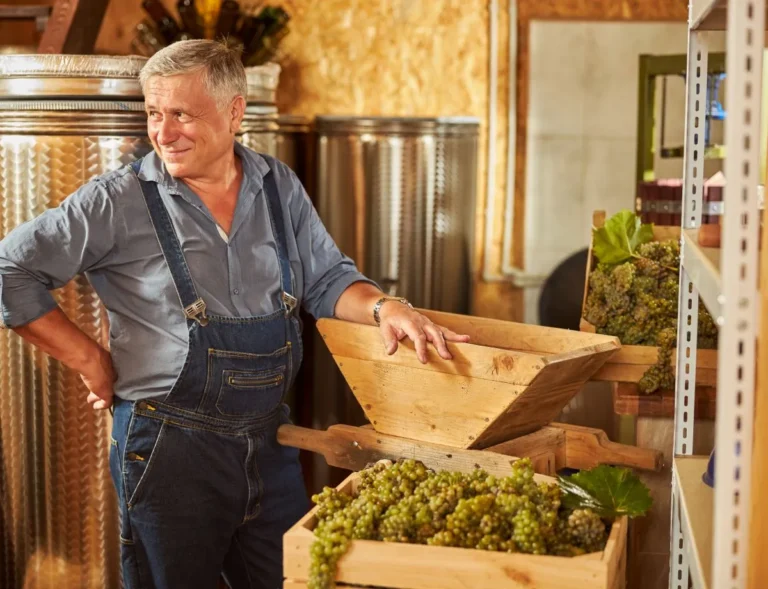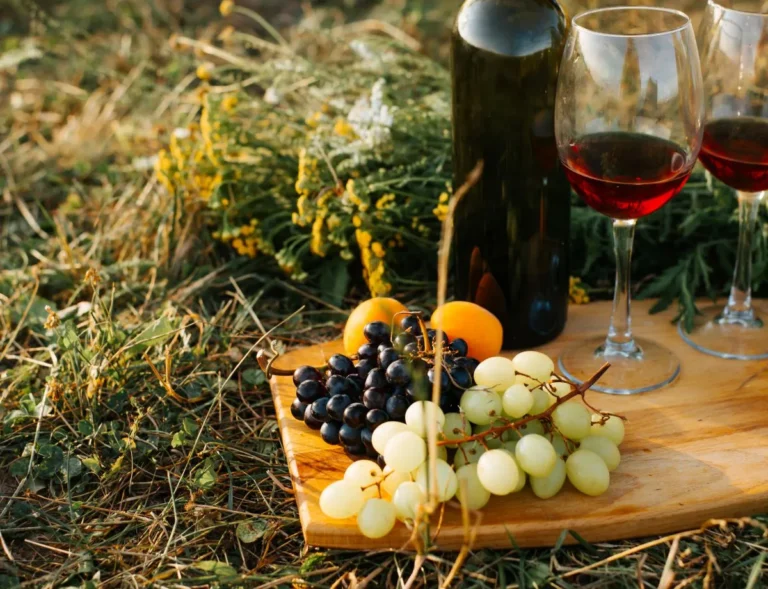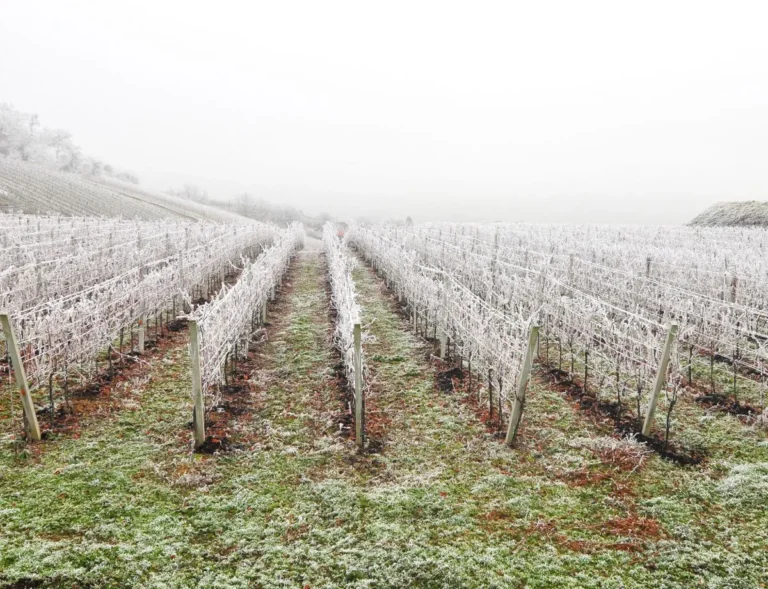🎁 Buy 6 Bottles, Get 6 FREE
How Many Grapes in a Bottle of Wine? Grape-to-Glass Journey
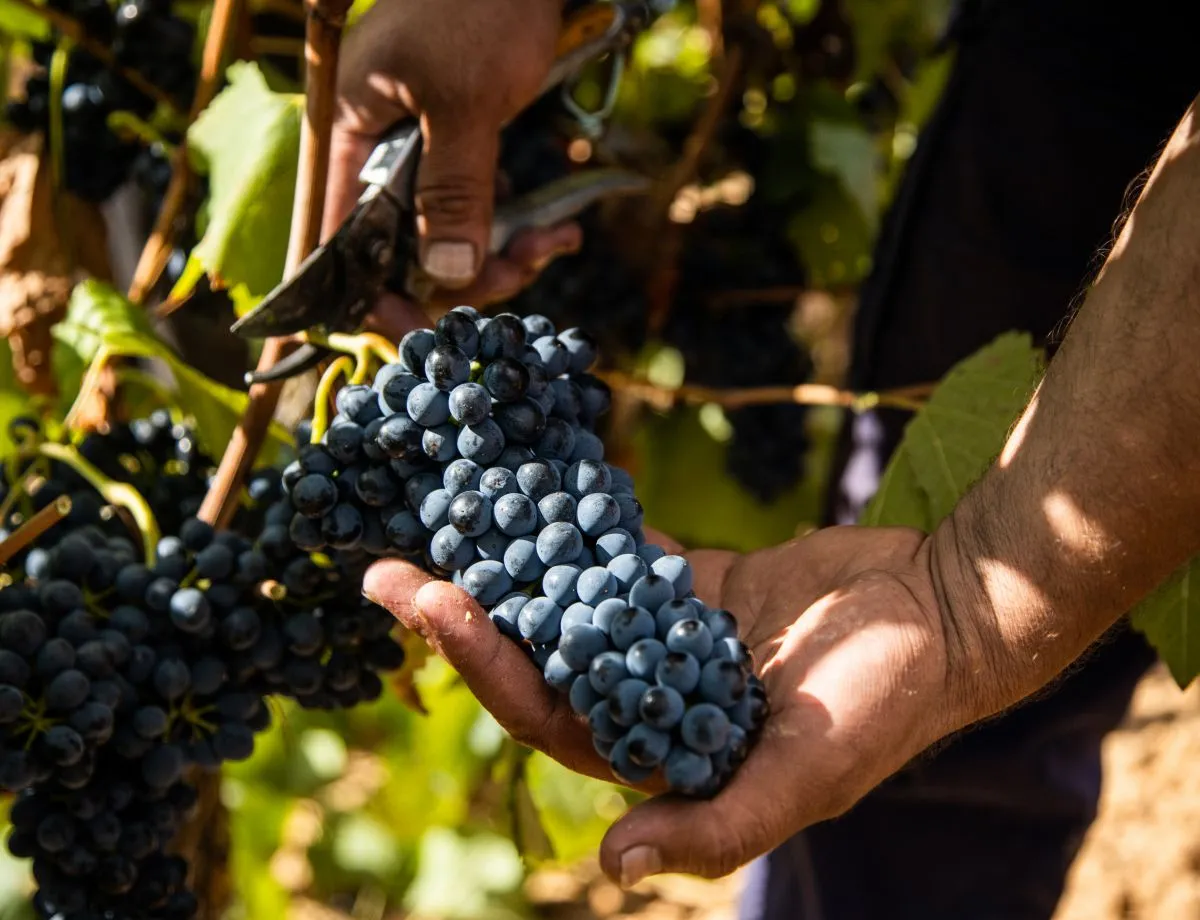
Have you ever wondered how many grapes it takes to create that delightful bottle of wine you enjoy at the end of a long day? The journey from grape to wine is fascinating, and the number of grapes in a single bottle might surprise you.
The Grape Basics
Before we get into numbers, let’s talk basics. Wine grapes are not your regular table grapes. They are smaller, with thicker skin and sweeter flesh, perfect for winemaking. Each grape variety has its unique profile, contributing to the diverse world of wines, from bold red wines to crisp white wines and everything in between.
It’s true, some wine improves with age. But only if the grapes were good in the first place.
A Cluster of Grapes
Grapes grow in clusters on grape vines, and each grape cluster can vary in weight depending on the grape variety and the conditions in the vineyard. On average, a cluster might weigh about half a pound, but this can vary significantly.
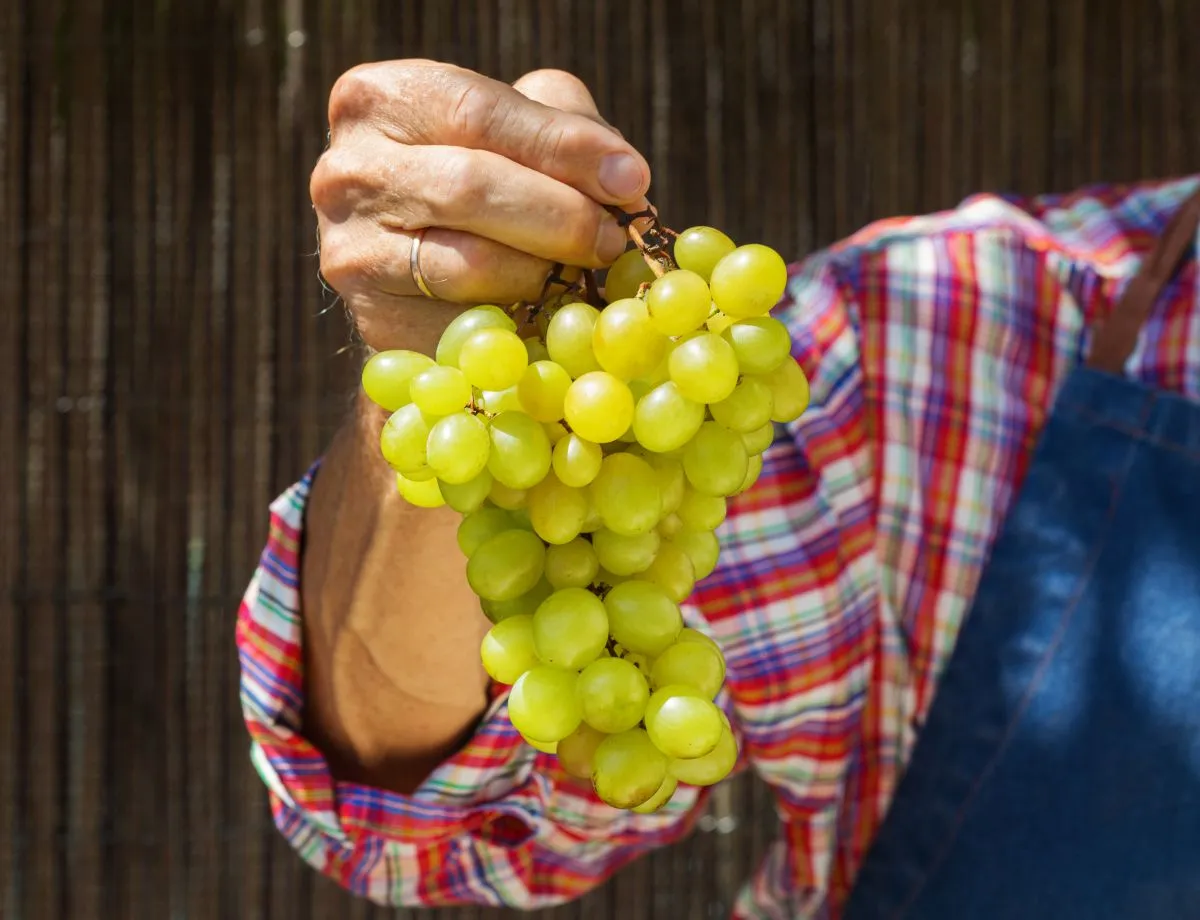
From Grape to Wine
The winemaking process starts with picking the grapes, usually tons per acre, from the vineyards. These grapes are then crushed, and the grape juice is fermented. Red wine, white wine, rosé wine – they all begin their journey as humble grapes.
The Numbers Game
So, how many grapes are in a bottle of wine? It’s a numbers game. A bottle of wine (750ml) typically comes from about 2.6 pounds of grapes. That’s roughly 600-800 grapes!
The exact number can vary based on the grape variety and the winemaking style. For instance, ice wine, made from frozen grapes while still on the vine, might require more grapes due to the lower grape juice yield.
Tons Per Acre to Glasses Per Bottle
Vineyards measure their yield in tons per acre. Each acre can produce a different amount of wine based on the grape variety and the vineyard’s practices. It’s a careful balance, as the vineyard aims to produce enough grapes to create a rich and flavourful wine without overwhelming the grapevine.
👉 Looking for the perfect bottle to enjoy? Explore our dry reds and taste the results of those 600–800 grapes yourself.
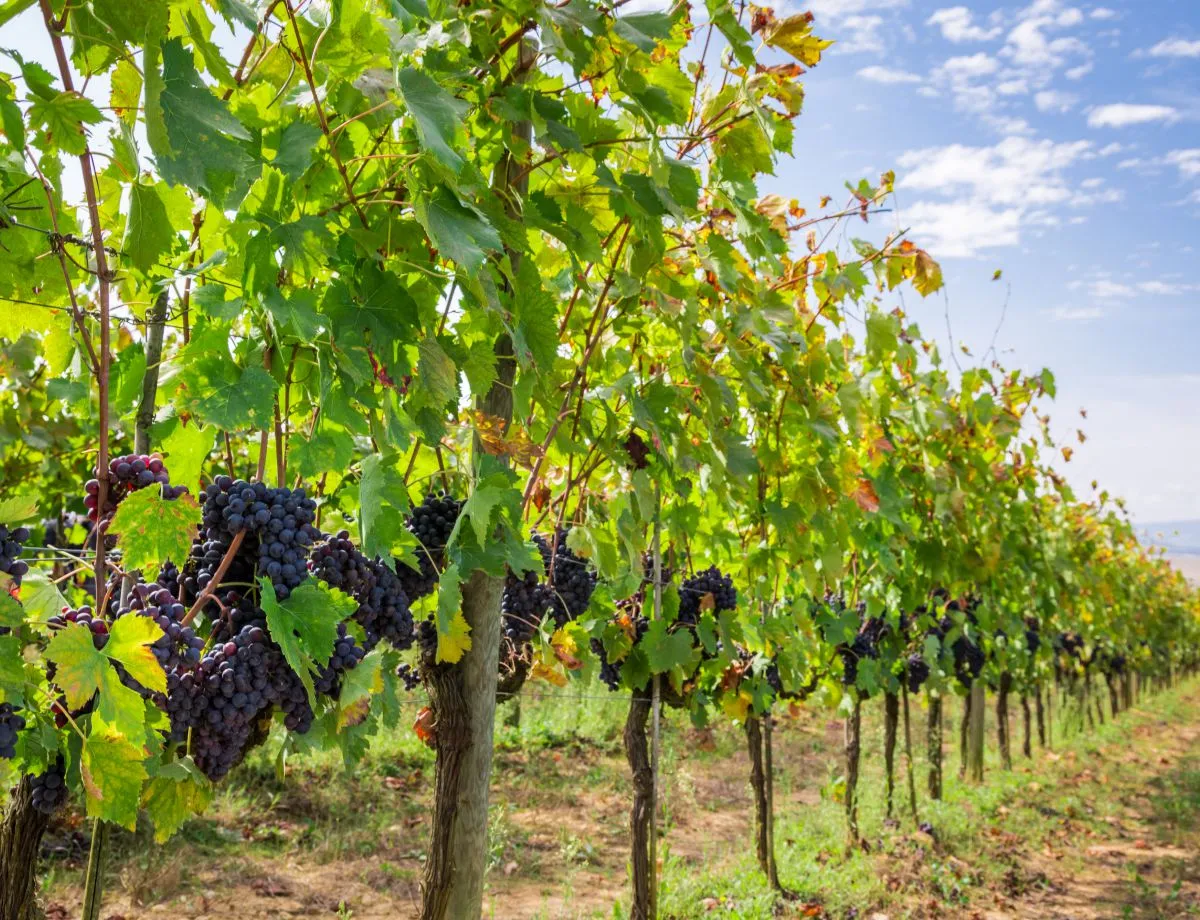
The Weight of Grapes
When we think about the weight of grapes in a bottle of wine, we’re looking at pounds of grapes. As mentioned, about 2.6 pounds of grapes go into making a standard bottle. This means that a vineyard can produce about 150 gallons of grape juice for each ton of grapes, eventually turning into finished wine.
Grape Variety and Wine Style
The type of grape and the style of wine also play a part. A full-bodied Cabernet Sauvignon might come from a denser grape cluster than a light Pinot Grigio. The grape variety not only influences the flavour and aroma of the wine but also the number of grapes in a bottle.
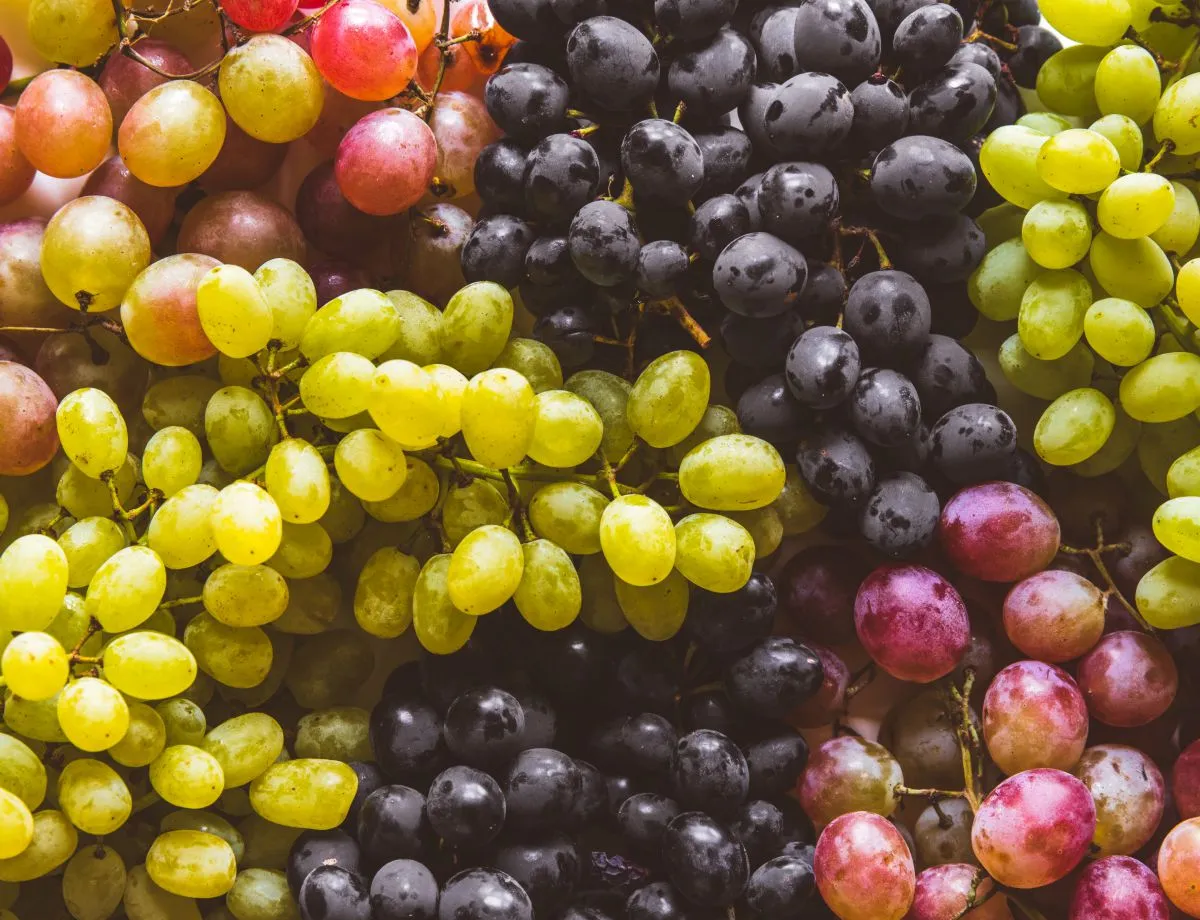
The Vine to Wine Journey
Each grape cluster, picked from the grape vine, is a potential bottle of wine. The journey from a ton of grapes to your wine bottle is a meticulous process overseen by vintners who understand the delicate balance between grape and wine.
The Art of Winemaking
Whether it’s the robust red wine from a Cabernet Sauvignon or the delicate notes of a Riesling Ice Wine, the winemaking process respects the grape’s characteristics. From crushing the grapes to fermenting the grape juice, each step is crucial in defining the final product – your bottle of wine.
Next time you pour yourself a glass, remember the journey of those 600-800 grapes. From the grapevine in the vineyard, through the winemaking process, to the wine bottle you hold in your hand.
So, cheers to the grapes and their remarkable journey to fill our glasses! 🥂
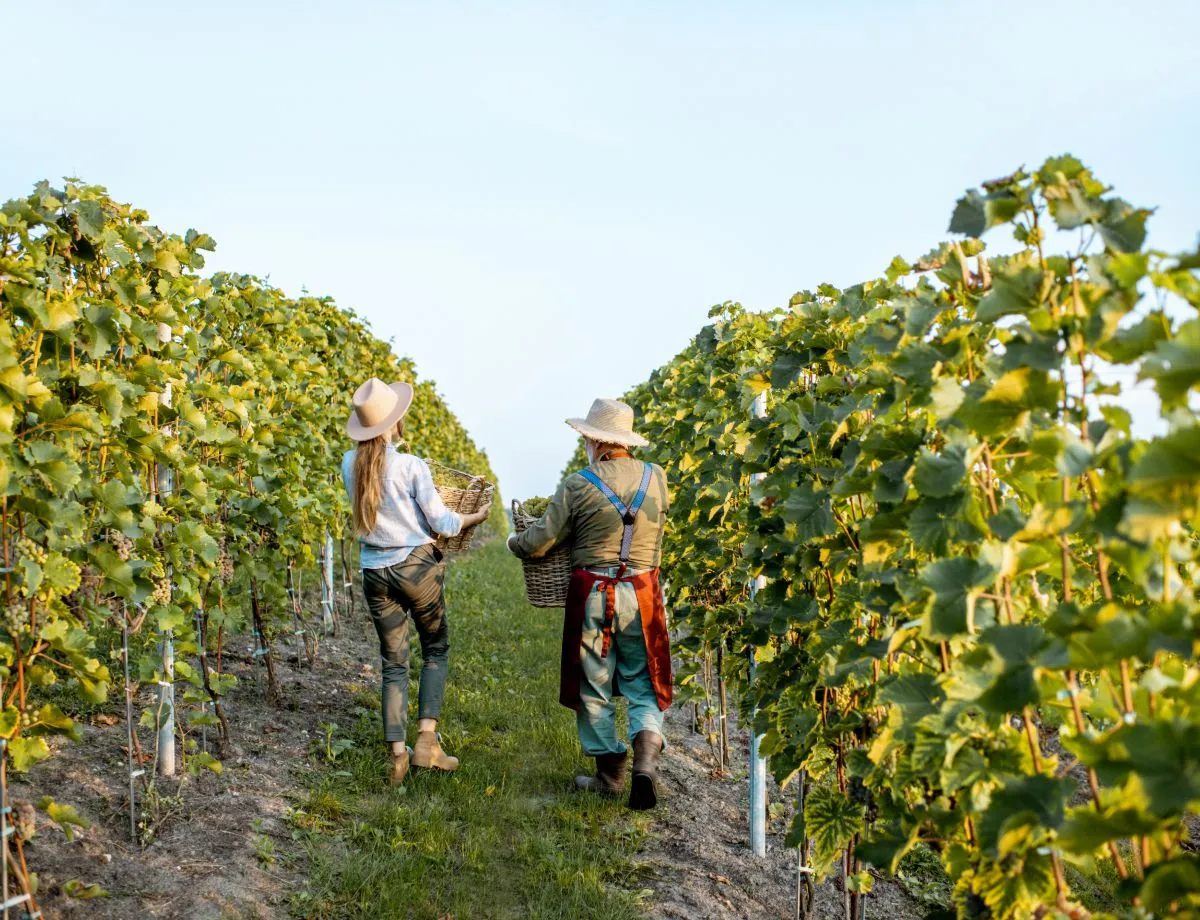
Your Wine Questions Answered
A standard 750ml bottle of wine typically requires between 600 to 800 grapes.
Grapes typically take 3-5 years from planting to reach maturity and produce a viable harvest for winemaking.
Grape vine yields vary widely, but an average grapevine can produce between 5-12 pounds (approximately 2.3-5.4 kg) of grapes per growing season.
Ice wine production is more grape-intensive, perhaps requiring 1,200 or more grapes for a single 375ml bottle due to the lower juice yield.
